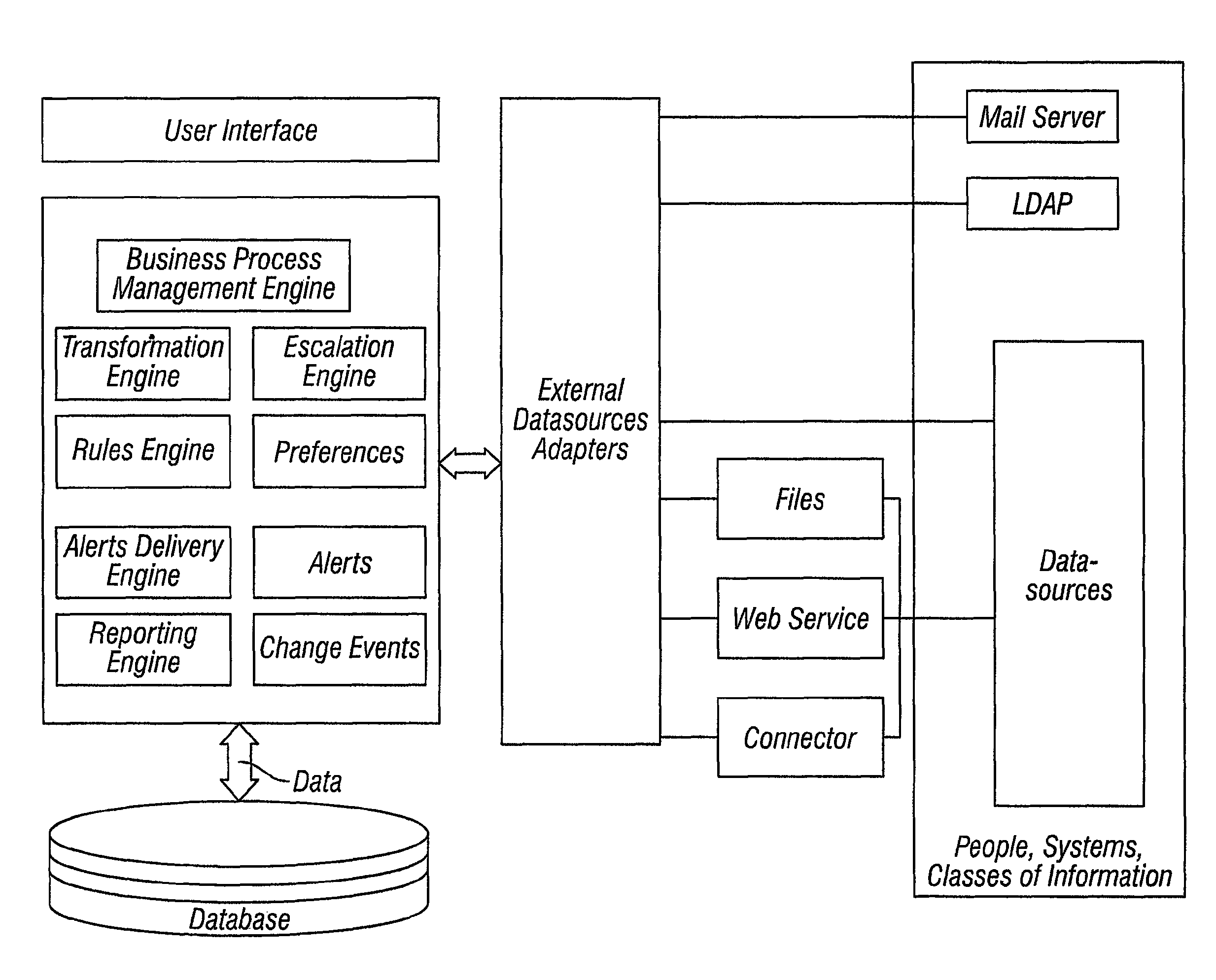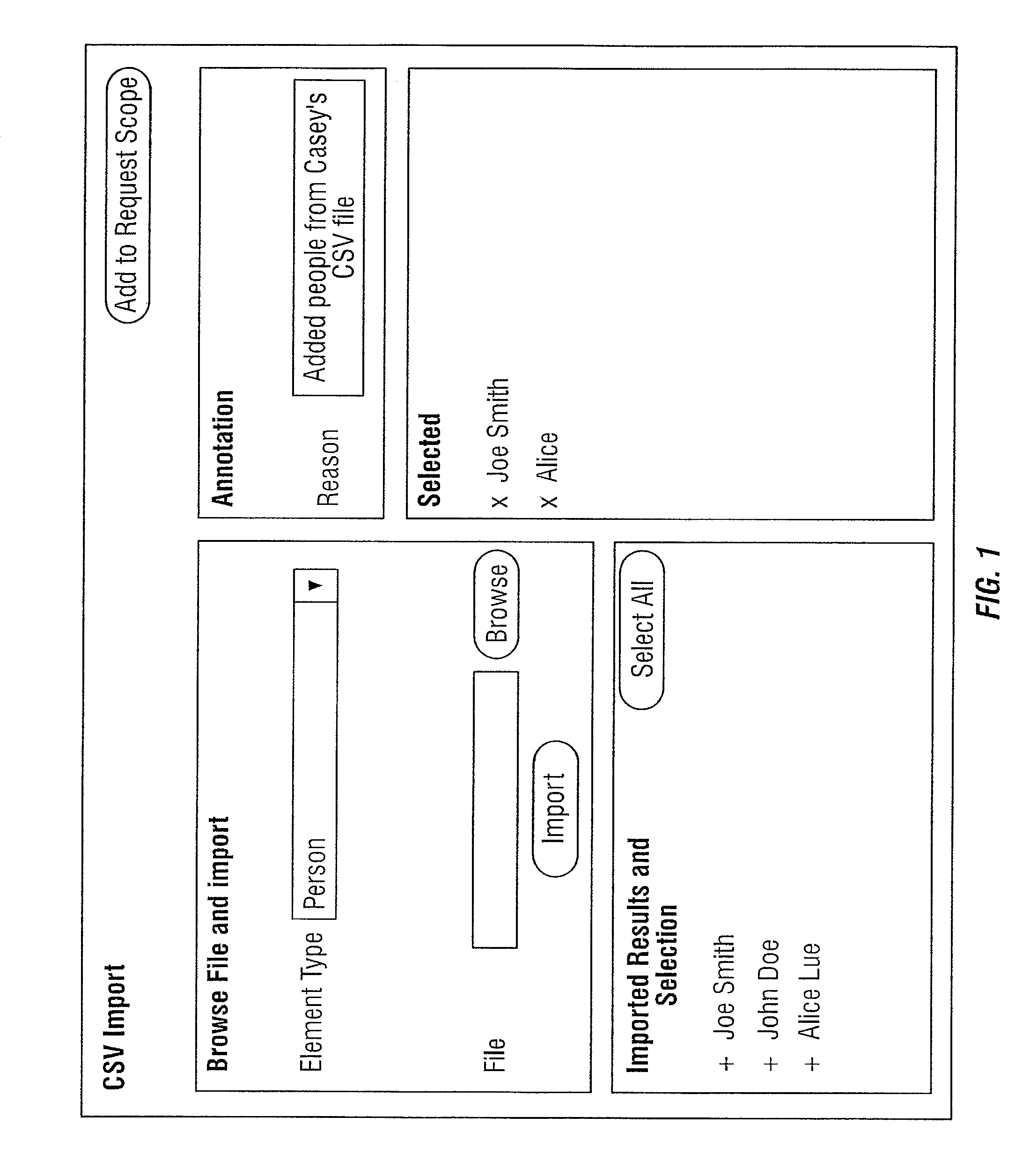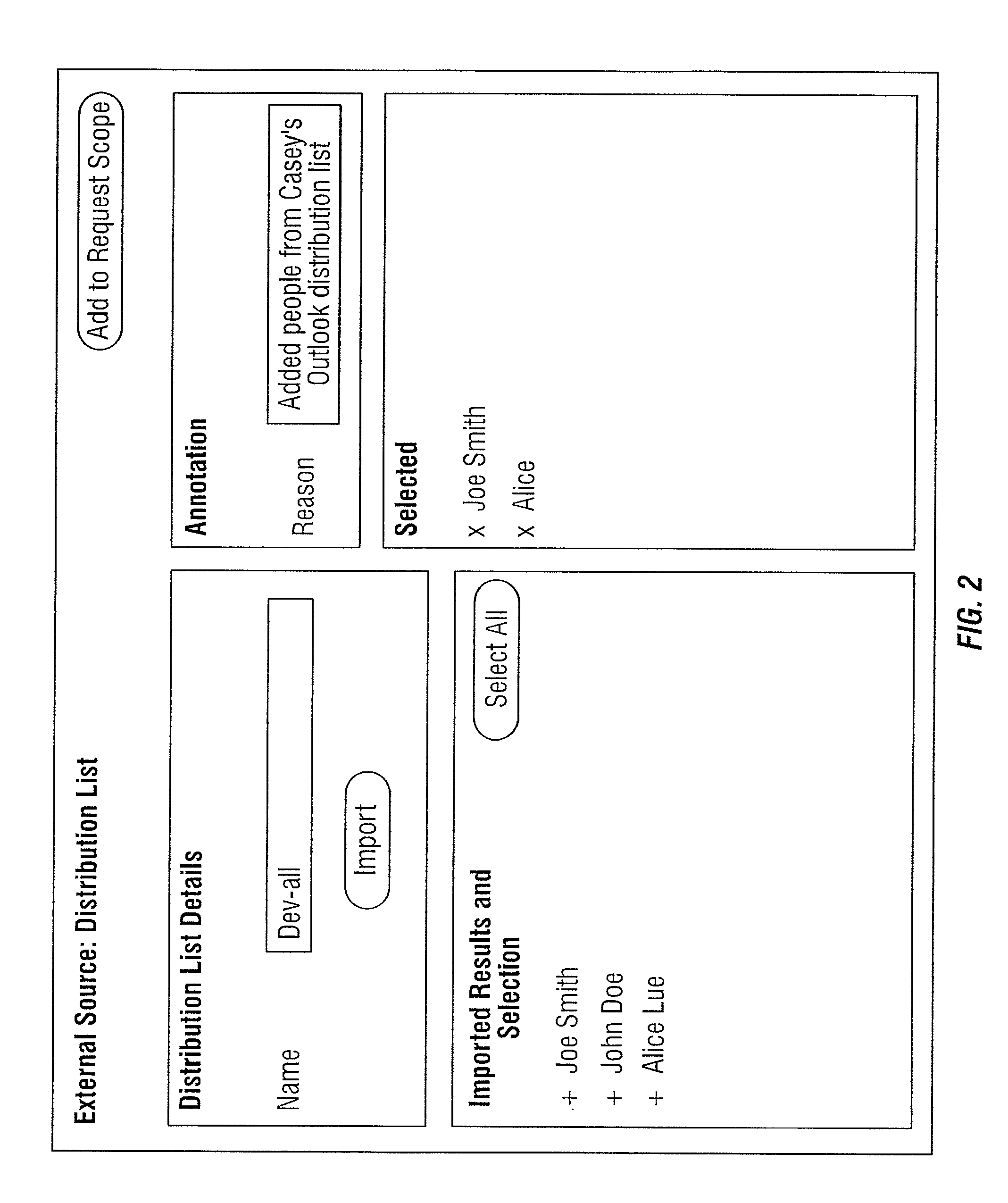External scoping sources to determine affected people, systems, and classes of information in legal matters
a technology of external scoping sources and affected people, applied in knowledge representation, instruments, computing models, etc., can solve the problems of complex list, complicated dynamic and complex process, and difficulty in identifying people, systems and classes of information, and achieve the effect of reducing complexity, reducing costs, and reducing costs
- Summary
- Abstract
- Description
- Claims
- Application Information
AI Technical Summary
Benefits of technology
Problems solved by technology
Method used
Image
Examples
Embodiment Construction
Implementation—The Knowledge Base
[0027]An embodiment of the invention leverages key information captured by the invention disclosed in the following document, and provides an extension from persons and systems to track request scope in terms of affected record types. This document is incorporated herein in its entirety by this reference thereto: [PA3697US], U.S. patent application Ser. No. 11 / 505,537, Systems and Methods for Utilizing an Enterprise Map to Determine Affected People and Systems, filed.
Implementation—Data Aggregation Approach
[0028]An embodiment of the invention creates, manages, and maintains a list of external sources that are able to provide a list of affected people, based upon specific litigation context parameters. Communication protocols are provided that enable the import of a list of affected elements from the external sources. A user interface triggers or executes the import of the affected list using the communication protocol. Conflicts between different aff...
PUM
 Login to View More
Login to View More Abstract
Description
Claims
Application Information
 Login to View More
Login to View More - R&D
- Intellectual Property
- Life Sciences
- Materials
- Tech Scout
- Unparalleled Data Quality
- Higher Quality Content
- 60% Fewer Hallucinations
Browse by: Latest US Patents, China's latest patents, Technical Efficacy Thesaurus, Application Domain, Technology Topic, Popular Technical Reports.
© 2025 PatSnap. All rights reserved.Legal|Privacy policy|Modern Slavery Act Transparency Statement|Sitemap|About US| Contact US: help@patsnap.com



